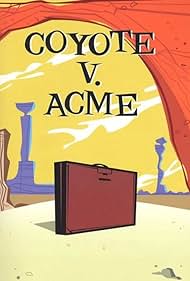By Hank Holland | Reporter
As of April 2024, Warner Bros executives have shelved three finished feature films: “Batgirl,” “Scoob: Holiday Haunt” and, most recently, “Coyote vs ACME.” The latest was canceled despite David Zaslav, the CEO of Warner Bros. and Discovery, having never seen the movie at all.
Zaslav has been the biggest driving force behind the continued vaulting of movies at Warner Bros. His biggest argument for the decision is that the movies themselves are a risk to profit margins and that writing off non-viable movies is a safer choice for studios. At the New York Times DealBook Summit, he said, “The question is, should we take certain of these movies and open them in the theater and spend another $30 [million] or $40 million to promote them?”
These decisions have been heavily criticized by audiences and cast and crew members alike, with many expressing that these fully produced, written-off movies should be offered to the public domain and some going as far as saying these practices should be considered tax fraud.
When the film community expressed anger at the shelving of “Coyote vs ACME,” Warner Bros. attempted to sell the film to other services such as Amazon and Paramount. Warner Bros. sought $70-80 million on top of its $30-40 million write-off and refused any counter offer. Outrage continued when a report was released stating that Zaslav had never seen the movie, despite positive results from test screenings.
Chris Hansen, chairman of film & digital media at Baylor, described the relationship that executives have with artists in production.
“The reality is that film became a business because it’s just so expensive to produce,” Hansen said. “The intersection of film as an art form and film as a business has always been the problem. The relationship is this weird ‘one for them, one for us.'”
Hansen went on to say that executives often take away flawed lessons from box office success, with one example being the summer of “Barbie.”
“’Barbie’ was a movie based on a toy, but it was fresh and original, and the takeaway has — instead of being more female voices making fresh, original movies, it was more movies based on toys,” Hansen said.
Hansen said that executives making business choices at the expense of creative choices is something that is common in Hollywood, and that it has been for a while.
“This particular situation with [Zaslav] — somebody from one business model coming into a studio, that’s happened before, coming in thinking he’s going to change the model of the studio or do it his way — but these things go in cycles,” Hansen said.
Hansen said this behavior will lead Warner Bros. into distancing industry workers from the studio and could lead to Zaslav leaving the studio, should it continue.
“Warner Bros. will eventually dump him, because they can’t work with talent and they’re not making money,” Hansen said. “Right now, all he’s doing is keeping them from losing money, but he’s not making them money.”
Sam Henderson, theater and film & digital media assistant professor at Baylor, said the casualties of films being shelved will be people starting out in the industry, who will be left unable to market themselves with a finished product.
“It’s hard for an agent to say to a casting director, ‘Oh, they booked this thing, and they did it, and nobody’s seen it,’” Henderson said.
Henderson cited the production of “Citizen Kane,” which was untouched by studios during its making. The director, Orson Welles, would never have that kind of freedom again.
“You know, Welles’ career tanked because he never got a blank check where somebody just left him alone,” Henderson said. “The guy who made ‘Citizen Kane’ couldn’t get it for the rest of his career, for 50 years. He fought trying to get that kind of control.”
Baylor students interested in working in the film industry should not wait around for Zaslav’s — or any executive’s — removal, according to Henderson.
“I think the No. 1 thing they can do is absolutely not wait,” Henderson said. “The most empowering thing you can do in my opinion is write. If you have any sense of it, any desire to do it, you should write, because scripts are where everything’s going to happen.”





